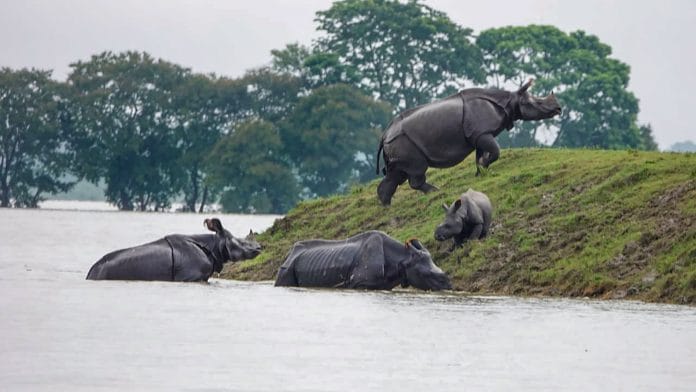A cruel evolutionary logic is at work among the world’s wildlife. Charles Darwin said the ability to adapt to change determined which species survived. Today, change is so fast, many of our larger animals simply don’t have time to adapt.
Scientists at Southampton University say a combination of poaching, habitat loss, pollution and climate change will cause more than 1,000 larger species of mammals and birds to become extinct over the next century.
Among the species threatened with extinction are rhinos and eagles. The researchers say that losing these creatures will bring about the collapse of ecosystems on which humans depend for food and water.
Too big and too slow
Larger animals are most at risk because they take longer to reproduce and reach maturity than smaller birds and animals. Most cannot easily change diet or habitat. So there is simply not enough time for them to adapt to a fast-changing world.
The future belongs to “smaller, faster-lived, more fecund, more generalist and preferentially insect-eating species” which, the researchers say, will fundamentally restructure life on our planet.
Radical action could save threatened species but it needs to start now. If we do nothing, the rate of extinctions will accelerate. In places where the depletion of the Amazon rainforest has been stopped, and trees allowed to regrow, wildlife numbers and diversity have recovered.
Also read: One million species will disappear — if we let them
A world changed by humans
The World Wide Fund for Nature (WWF) says most of the world’s land has already been modified by humans, with harmful effects on biodiversity. One sixth of the Earth’s surface is now designated for wildlife protection but the same cannot be said for freshwater and marine environments.
Freshwater species populations declined by more than 80% between 1970 and 2012, mostly due to habitat loss from dams and water abstraction. The amount of life in the seas declined by a third over the same period, mostly due to overfishing.
The International Union for Conservation of Nature’s Red List contains more than 27,000 species that are at risk of extinction, including 40% of all known amphibians and a quarter of mammals.
At present, the Red List monitors the populations of 98,500 species but the IUCN says it urgently needs to add another 60,000 to its list to get a complete picture of the extinction crisis facing the world.
Humans have eliminated most large animals from the world over the last 125,000 years according to a study by the University of New Mexico. The WWF says global animal populations have reduced by almost two-thirds since 1970.
Also read: Humans are changing Earth in many different ways at once
A threat to us all
The researchers at Southampton University say that if the extinctions they predict are allowed to materialise, it will threaten the future of human life on the planet. For example, vultures, which have long lifespans and breed small clutches, play a vital role in disease suppression.
Without vultures to dispose of dead animal carcasses, the potential for the spread of disease to humans will increase significantly, especially if the number of insect-eating birds is also reduced by the same human pressures that see off the vultures.
Saving endangered wildlife is an act of self interest. But can we act in time?
Scientists say humans are causing Earth's sixth mass extinction
It will take our planet 3 million years to recover. ? Read more: https://wef.ch/2RTLCcU
World Economic Forum यांनी वर पोस्ट केले सोमवार, १० जून, २०१९
This article was originally published on the World Economic Forum‘s website.






